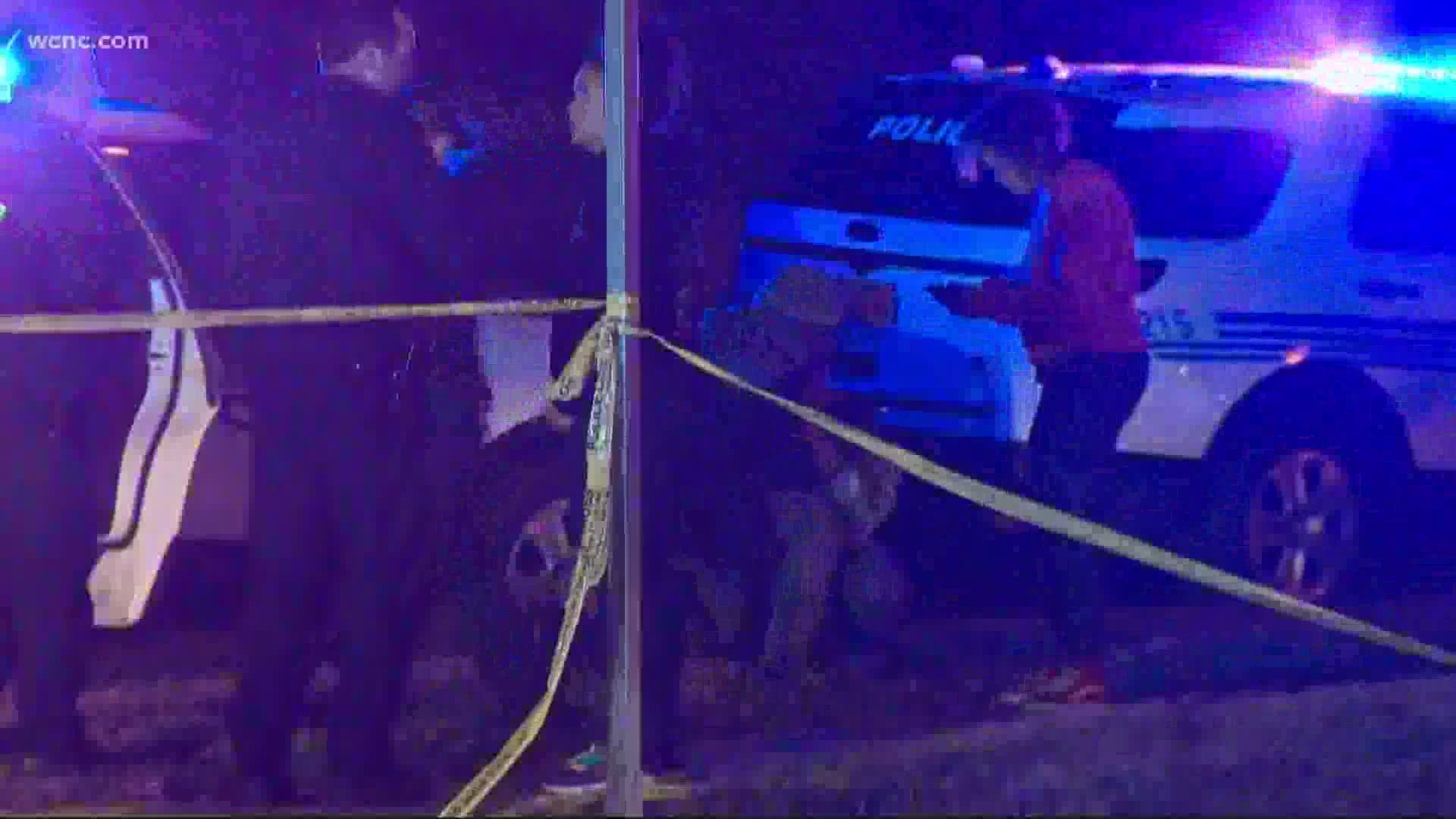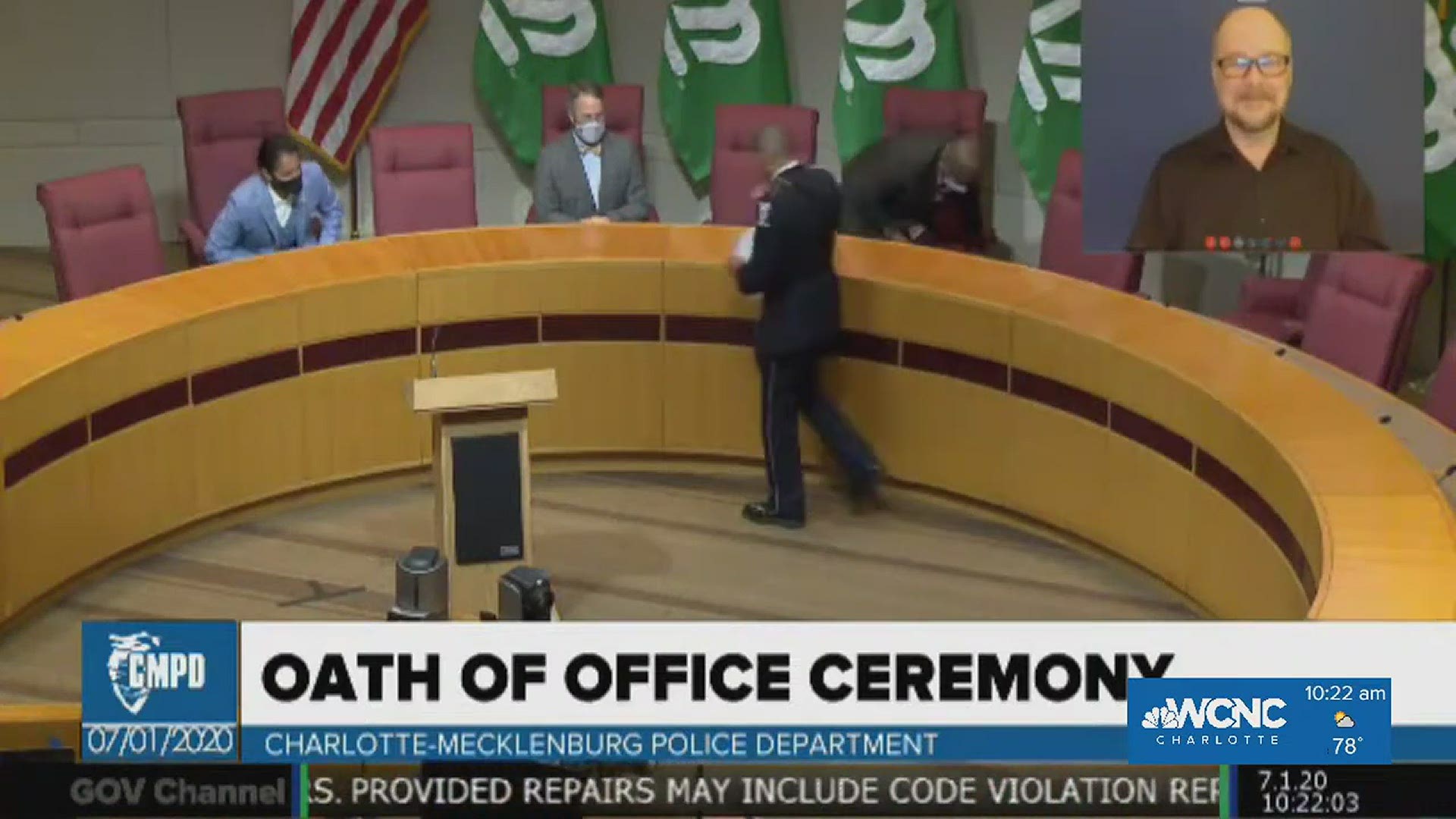CHARLOTTE, N.C. — More than a year after people started asking the mayor to come up with a plan to address the growing violence in Charlotte, city leaders have still not finalized that plan. The Charlotte City Council will discuss its evolving plan to reduce violence Monday night.
In the meantime, WCNC Charlotte obtained emails sent to and from the mayor about this very issue, including several that date back to early 2019. More than a year later, people are still waiting for the city to act.
"This city is a battlefield in which I am not willing to wade into," one resident wrote in an email to Mayor Vi Lyles and other leaders on February 19. 2019. "Our city is NOT safe...This city is a combat zone, without the official declaration."
"It's time to take the crime in this city serious and to stop listening to these people who want to continue to protect criminals," another person wrote on March 29, 2019.
"The murders need to stop," a Charlotte native wrote in an email to the mayor in August.
Mayor Lyles said the city would tackle the violence issue in January. In the first few months of 2020, city council members discussed possible solutions at length at multiple meetings, but the public's heard little since. Meanwhile, more and more people keep getting murdered. Six months in, Charlotte's on pace to suffer even more homicides in 2020 than last year.
"Why are we waiting?" Lucille Puckett asked in December 2019, frustrated by the city's slow to evolve response to deadly violence. "If it was your son, your daughter, your grandchild, would you be waiting then?"
Puckett, who lost an election bid for mayor, wears her son's ashes in a bullet around her neck.
"My son was murdered March 22, 2016," she said.
Puckett wasn't the only one who felt that way. Robert Dawkins with Safe Coalition NC has pushed for data collection, violence interruption and a public health approach since last year.
"It's moving slower than I want," Dawkins said in December. "Hopefully, we'll start seeing some fruits from that early next year."
People who emailed the mayor included a person who called for disruption and another who suggested the city focus on crime hot spots, which is part of the current approach.
Emails show the NAACP sent the mayor a proposal for a Community Education Plan in June. Despite the lack of public communication, the mayor shared her interest in the idea with fellow councilmembers behind the scenes the next week.
"The proposals targets Charlotte/Mecklenburg community members to educate on cultural awareness, conflict resolutions, gun violence, gun safety and implicit bias," the mayor wrote to colleagues soliciting feedback. "The course would begin with a pilot at the Early College High school on UNC Charlotte's campus; in-school suspension programs and community with a mother-to-mother education of self-awareness, proper emotional responses and ways to address issues child then to bring home."
Even before that, emails show she solicited data and innovation help in May 2019 from former New York City Mayor Michael Bloomberg.
"Mayor Bloomberg has provided consulting advice on both housing and climate change," the mayor wrote. "I wonder if there in an opportunity to have advice and guidance on how we address this challenge with data and innovation. We are still a small enough city that we can engage directly with our residents and we have the resources to implement recommendations. Our Police Chief is fully on board."
Mayor Lyles emailed a resource to former Chief Kerr Putney later that month.
"Thanks for your help to determine the best way to address the increasing violence in our city with a focus on the number (sic) homicides occurring this year," she wrote. "After reaching out to the Bloomberg Foundation, I had a call with Beth Blauer, Executive Director of the Center for Government Excellence at John Hopkins. She has a green light to advise and assist in this effort. I would like you to contact her for a conversation. In my brief discussion with her, she talked about assessment tools to determine those at most risk; a map to deploy interventions both short and long term. She is very familiar with the Major Cities Police Chiefs; she is also willing to establish a cohort of cities for comparison."
Mayor Lyles replied to another concerned citizen by saying the city needs help from neighborhood leaders too.
She also received several emails from the public asking for more police support from elected leaders, including help filling CMPD officer positions.
"Think maybe you could make it a priority for filling the empty slots with the police now?" one person wrote in March 2019. "Leadership time."
"Please help CMPD keep us safe," another person wrote in April 2019. "At this point all the police do is clean up after a mess with nothing left for preventing crime or adequate investigations and arrests. Don't let us end up another Baltimore."
"I want the new light rail, the new airport, the roads widened," one citizen wrote in October. "However morally we have to make our Citizens safe first. We need to get our priorities in order."
The police shortage has only slightly improved since then. Today there are still 156 vacancies, according to a CMPD spokesperson.


